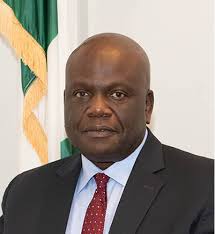
The Director General of the Nigeria Civil Aviation Authority (NCAA), Captain Musa Nuhu has revealed that since the federal government embraced the Single African Air Transport Market (SAATM), it has created 17, 400 jobs in the aviation industry, increased aviation contribution to Gross Domestic Product (GDP) by $128 million and enhanced consumer benefits by $93 million.
SAATM is a flagship project of the African Union (AU) Agenda 2063, an initiative to create a single unified air transport market in Africa to advance the liberalisation of civil aviation in Africa and act as an impetus to the continent’s economic integration agenda.
The federal government endorsed SAATM and Nigeria fully embraced it at inception.
Nuhu who reeled out the benefits of SAATM to Nigeria, stated in the presentation he made at the Federal Airports Authority of Nigeria (FAAN) National Aviation Conference (FNAC), which ended yesterday in Abuja that more economic benefits would accrue to Nigeria from SAATM.
According to him, the benefits include the increase in the revenue of Nigerian carrier that embark on regional operations and the movement of goods and services in the African region, which, he said, would over time, increase passenger traffic and cargo movement as trade increases among African countries.
Nuhu at the conference with the theme: ‘Sustainability of the Aviation Industry in Nigeria,’ explained that full adoption of SAATM by all industry professionals would strengthen and position the nation’s aviation sector as key player on the continent, adding that it has immense economic benefits for Nigeria and its investors.
Nigerian airlines had vehemently kicked against its adoption when the new policy was unveiled, for the fear that it would undermine their domestic operations, and would likely give opportunity to other players from Africa to erode Nigeria’s domestic air travel market, but the federal government resisted the operators and adopted it about three years ago and the decision has started yielding results.
“The successful implementation of SAATM is a key driver of the African Continental Free Trade Agreement (AfCFTA), another flagship project of AU Agenda 2063. Several sectors of the national economy will derive significant benefits from the implementation of AfCFTA thus contributing to economic growth and development. Preserving nature and ensuring resource efficiency, NCAA continues to demonstrate environmental leadership amongst its peers in the region in order to ensure that Nigeria delivers on achieving the ambitious goal of a 50 per cent reduction in net carbon emissions by 2060 through collaboration with all industry stakeholders,” he said.
Nuhu also disclosed that the number of aircraft in the Nigerian registry has climbed to 358 in the last eight years from 175 in 2015, while the country’s airports have increased from just 27 within the same period to 40 at present.
He said that when the outgoing administration came onboard in 2015, there were only 34 Air Transport Licences (ATL), but today, the number has increased to 73. He added that commercial certificates were just 196, but skyrocketed to 320 at the present.
The Director General said that the number of Air Operator Certificates (AOCs) to airlines has increased by 100 per cent within the period from only 16 to 32 at present and emphasised that in 2015, the number of the nation’s airports were only 27, but has increased by 13 in 2023 to 40 aerodromes and that airstrips across the country moved from 77 to 92, indicating an increase of 15 in the last eight years.
Also, Nuhu said the number of helicopters across the country has increased from 221 in 2015 to 370 nationwide, emphasising that aviation industry has continued to play a significant role in the socio-economic development of Nigeria, revealing that data released by the National Bureau of Statistics (NBS) recently, indicates that the sector is the second fastest growing industry of the nation’s economy pre-Covid-19.
He, however, regretted that the sector in Nigeria was faced with numerous challenges that impacted sustainability and profitability, stressing that many of the challenges were not under the Nigeria Civil Aviation Authority’s purview, but despite that NCAA had through its regulatory framework created an enabling environment for airlines and other operators to thrive.
He identified some of the challenges to include high cost of funds, debt profile, Jet A1 and forex scarcity.
“Air transport business is a relatively low-yield venture that requires huge capital outlay. It is a difficult venture to implement with the prevalent macroeconomic environment in the country like double digit interest rates, currency devaluation, inflationary pressure and others. Several domestic operators are languishing under the burden of high levels of indebtedness. These debts are owed to support service providers, both public and private. The NCAA is not spared of these debts.
“Forex is a significant cost component of transactions in the aviation sector. Acquisition of equipment, spare parts, maintenance, personnel training, insurance and others. Lack of access to adequate forex at official rates, compels service providers resorting to secondary markets at exorbitant rates. Jet A1 accounts for about 40 per cent of the cost of airline operations in Nigeria due to high prices. The cost of Jet A1 has tripled over the last 12 months, eroding the thin profit margins of airlines,” the Director General further said.
Meanwhile, industry players have condemned the compulsory contribution of aviation agencies’ 40 per cent revenue generation to the federation account.
This was excoriated by the Managing Director of FAAN, Captain Rabiu Yadudu, who said that the agency contributed about N44 billion of its revenue to the federation account in 2022.
Yadudu said the forceful contribution was having a dire strait effect on the performance of the agency, noting that that policy contravened the new FAAN Act 2022, which stipulates that all revenue generated by the agency must be ploughed back into the sector for the purpose of infrastructure development.
According to him, FAAN in 2022 contributed about N44 billion to the federal government’s purse through the policy. The federal government had on October 2022, increased the compulsory contribution to federation account by its revenue generating agencies to 40 per cent from 25 per cent.
With this, 40 per cent of the Internally Generated Revenue (IGR) by government agencies, which is sent to the Treasury Single Account (TSA), is now meant for the federal government to execute projects. There are six agencies in the Ministry of Aviation, out of which four are affected by the new policy of the federal government.
THISDAY






